

25,000+ students realised their study abroad dream with us. Take the first step today
Here’s your new year gift, one app for all your, study abroad needs, start your journey, track your progress, grow with the community and so much more.

Verification Code
An OTP has been sent to your registered mobile no. Please verify

Thanks for your comment !
Our team will review it before it's shown to our readers.

Essay on Time Management
- Updated on
- Aug 27, 2022

“Time isn’t the main thing, it’s the only thing”- Mile Davis.
Time management is a prestigious topic for budding subconscious minds. It is one of the most crucial skills that you must inculcate from early on. This skill has vital importance when you move into a professional setting. It is extremely important to manage time efficiently as not managing time can create many problems in your day-to-day life. It is also a common essay topic in the school curriculum and various academic and competitive exams like IELTS , TOEFL , SAT , UPSC , etc. This blog brings you samples of essays on time management with tips & tricks on how to write an essay.
Essay on Time Management in 200 words
Time stops for none and is equal for all. Everyone has the same 24 hours in a day but some people make better use of time than others. This is one of the most important reasons some people are experts in what they do. Therefore, time management plays a vital role in both personal as well as professional lives.
Time management is basically an effort made consciously to spend a certain amount of time performing a task efficiently. Furthermore, it is estimated that to have better results, one needs to do productive work. Thus, productivity is the key focus here. Moreover, maintaining a careful balance between professional life, social life, and any other hobbies or activities is a great example of efficient time management.
Time management is also crucial for students from an academic perspective as students require to cover many subjects. Thus, efficiently managing time is an important skill in everyone’s life. Around the world, there are two views for time management – linear time view and multi-active time view. The linear time view is predominant in America, Germany and England, and it aims at completing one task at a time. Whereas a multi-active view aims at completing a number at once and is predominant in India and Spain. Nevertheless, time management is one of the important traits of a successful individual, students are advised to follow whichever is convenient for them.
Essay on Time Management in 300 Words
Time Management is a key skill for job opportunities as employers recruit candidates who have this efficient skill. Thus, it is advised to initiate inculcating this vital skill as soon as possible. In the academic setting, time management plays a vital role and helps in the accomplishment of tasks efficiently and effectively.
Time management is the process of planning and performing pre-scheduled activities with the aim of increasing productivity, effectiveness and efficiency. Different cultures hold different views on Time Management. However, a multi-active time view and a linear time view are the two predominant views. In a linear time view, the aim is set to complete one particular task at a time whereas, in a multi-active view, the focus is on completing a greater number of tasks at once. Emphasis is given on productivity and effectiveness, but students are free to choose their own view of time management.
Time management is crucial as it is helpful in setting a timeline for achieving a particular goal. Moreover, it also increases the efficiency of the tasks at hand. It becomes necessary for working professionals as they need to balance their personal and professional life. Thus, they do not have time to dwell on each and every detail in every task. In such cases, a multi-active view is one of the helpful methods. Time management works best when a goal or target is set. For instance, a student becomes far more effective at learning when they decide to assign 2 hours for learning a particular concept. This is effectively a method of benchmarking progress. So, every time the activity is performed, one can measure themselves and improve upon various aspects of their tasks.The clear conclusion is that time management is a crucial skill for students and working professionals. Thus, everyone must practise time management to improve productivity and efficiency of tasks.
Tips for Writing an Essay on Time Management
To write an impactful and scoring essay here are some tips on how to manage time and write a good essay:
- The initial step is to write an introduction or background information about the topic
- You are required to use the formal style of writing and avoid using slang language.
- To make an essay more impactful, write dates, quotations, and names to provide a better understanding
- You can use jargon wherever it is necessary as it sometimes makes an essay complicated
- To make an essay more creative you can also add information in bulleted points wherever possible
- Always remember to add a conclusion where you need to summarise crucial points
- Once you are done read through the lines and check spelling and grammar mistakes before submission
Check Out Popular Essay Topics
- Essay on Population Explosion
- Essay on My Hobby
- Essay on Human Rights
- Essay On Sikkim
- Essay on Disaster Management
- Essay on Democracy
- Essay on Child Labour
- Essay on Global Warming
- Essay on Women Empowerment
- Essay on My Aim in Life
- Essay on India
- Essay on Education System
Lastly, we hope this blog has helped you in structuring a terrific essay on time management. Planning to ace your IELTS, get expert tips from coaches at Leverage Live by Leverage Edu .
Sonal is a creative, enthusiastic writer and editor who has worked extensively for the Study Abroad domain. She splits her time between shooting fun insta reels and learning new tools for content marketing. If she is missing from her desk, you can find her with a group of people cracking silly jokes or petting neighbourhood dogs.
Leave a Reply Cancel reply
Save my name, email, and website in this browser for the next time I comment.
Contact no. *

Leaving already?
8 Universities with higher ROI than IITs and IIMs
Grab this one-time opportunity to download this ebook
Connect With Us
25,000+ students realised their study abroad dream with us. take the first step today..

Resend OTP in

Need help with?
Study abroad.
UK, Canada, US & More
IELTS, GRE, GMAT & More
Scholarship, Loans & Forex
Country Preference
New Zealand
Which English test are you planning to take?
Which academic test are you planning to take.
Not Sure yet
When are you planning to take the exam?
Already booked my exam slot
Within 2 Months
Want to learn about the test
Which Degree do you wish to pursue?
When do you want to start studying abroad.
September 2024
January 2025
What is your budget to study abroad?

How would you describe this article ?
Please rate this article
We would like to hear more.
- IELTS Scores
- Life Skills Test
- Find a Test Centre
- Alternatives to IELTS
- General Training
- Academic Word List
- Topic Vocabulary
- Collocation
- Phrasal Verbs
- Writing eBooks
- Reading eBook
- All eBooks & Courses
IELTS Essay Time Management
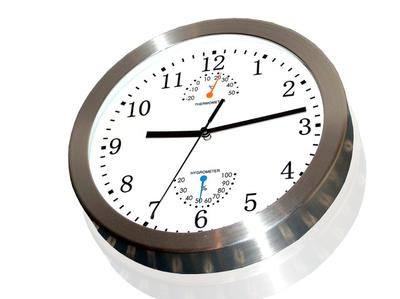
Hi everybody, I am struggling with managing the time of task 2. Thirty minutes to complete the essay and 10 minutes to revise it is still a luxury. How can I develop the skill of writing in a fast manner? Any suggestions? Any experiences? With all the appreciation.
Click here to add your own comments
Join in and write your own page! It's easy to do. How? Simply click here to return to IELTS Academic Writing Task 2 Forum .
Before you go...
Check out the ielts buddy band 7+ ebooks & courses.

Would you prefer to share this page with others by linking to it?
- Click on the HTML link code below.
- Copy and paste it, adding a note of your own, into your blog, a Web page, forums, a blog comment, your Facebook account, or anywhere that someone would find this page valuable.
Band 7+ eBooks
"I think these eBooks are FANTASTIC!!! I know that's not academic language, but it's the truth!"
Linda, from Italy, Scored Band 7.5

IELTS Modules:
Other resources:.
- All Lessons
- Band Score Calculator
- Writing Feedback
- Speaking Feedback
- Teacher Resources
- Free Downloads
- Recent Essay Exam Questions
- Books for IELTS Prep
- Useful Links

Recent Articles
Decreasing House Sizes Essay
Apr 06, 24 10:22 AM

Latest IELTS Writing Topics - Recent Exam Questions
Apr 04, 24 02:36 AM

IELTS Essay: English as a Global Language
Apr 03, 24 03:49 PM

Important pages
IELTS Writing IELTS Speaking IELTS Listening IELTS Reading All Lessons Vocabulary Academic Task 1 Academic Task 2 Practice Tests
Connect with us
Copyright © 2022- IELTSbuddy All Rights Reserved
IELTS is a registered trademark of University of Cambridge, the British Council, and IDP Education Australia. This site and its owners are not affiliated, approved or endorsed by the University of Cambridge ESOL, the British Council, and IDP Education Australia.

Are you worried about time management?
Timing and preparation in ielts writing, one of the biggest concerns for people doing the ielts exam, particularly in the writing section, is time management..
I have had many students who get to the IELTS writing section and start stressing out because their time management becomes an issue and they can’t finish the essay or leave only 10 minutes for task 1. You will only have around 40 minutes to write a 250+word essay, so straight away this tends to create anxiety. Then there is writing task 1 which should only take 20 minutes . That’s 1 hour in total for the writing section. It is easy to feel pressure in this situation.
If you don’t finish your essay and fail to write a conclusion then you will end up with a Band 5 in task response.
There are two things to consider here :
1. lack of preparation.
Time management issues come from not being prepared . If you feel that you are not quite ready for the exam or if you are in a hurry to get to Band 7 or more, it will only cause anxiety and you will end up under huge pressure to finish in a set amount of time. Fear creeps in and you stress about timing and worry about failing. This is not a good mindset to have in IELTS.
It takes weeks or months of consistent preparation, practice and good feedback to get from a Band 6 to a Band 7.
2. Planning issues
You should allocate 10 minutes to planning your essay . Some students think they are wasting time planning or they only spend 2 minutes planning. So they start writing and suddenly get new ideas and think, ‘maybe I should put that in’ hoping to impress the examiner with sophisticated ideas. I have had a few students who did this, they couldn’t finish their essay and ended up with a Band 6 even though they were capable of a Band 7.
Do not go into the exam until you have found your weaknesses and got feedback from an IELTS expert on your writing.
It could be just two or three areas which are causing problems such as grammar (articles, plurals, faulty complex sentences) or wording issues (wrong collocations, memorised words from lists) Maybe it is task response (going off-topic, not covering both sides in a discussion essay, not supporting your ideas etc..)
I advise anyone doing IELTS to spend at least a few months preparing so that when you go into the exam you will feel relaxed. When you feel confident in your writing then you can practice timing your essay in 40 minutes and 20 minutes for a task one.
Begin by giving yourself over an hour to write an essa y. WHen you get the hang of it bring that down to 1 hour, then 50 minutes, then 45 minutes, and finally, start timing yourself to get the essay written in 40 minutes. Start slowly and work at it over time.
Planning time
Planning is very important in the writing exam. Set aside 10 minutes to plan your essay . It sounds like a long time but you need this time to analyse the question, think of ideas and supporting points and get an idea for the structure. Once you have decided on your plan and got your main points with supporting points, stick to them, don’t suddenly change your ideas when writing , you will only confuse yourself.
See this lesson here about the 5 things you need to do before you begin writing an essay.
Are you stuck at Band 5.5?
If you have issues with grammar and vocabulary and you are stuck at Band 5.5 then you will have a lot of work to do that could take months or even a year. It really depends on your study schedule.
Ask yourself this: are you finding the time to study or are you finding excuses not to study?. Remember that to jump from a Band 5 to a Band 7 is a huge task.
The IELTS test is quite simply testing your English. If you are a Band 5 your English level is around Pre-intermediate (B1 on the CEFR scale) so you will need lots of good feedback on your writing and speaking.
To have a good chance at a Band 7 your English level should be at the higher end of B2 and close to C1 on the CEFR scale below.

Source: ielts.org
Are you doing the IELTS exam over and over?
Many people studying for IELTS think that by doing practice test after practice test and doing the exam over and over it will give them different results. It doesn’t . Why? because you need to get feedback on what your weaknesses are. For example, if writing is an issue ask yourself lots of questions.
- What part of the writing is the problem? is it paraphrasing? grammar? vocabulary? can’t think of ideas? relevant supporting points? Or maybe it’s your task 1 writing that is weak and dragging your score down.
- What exactly is the issue? if it is grammar then what needs to be fixed? prepositions, tenses? infinitive /gerunds? relative clauses? …and so on
- Have you made a study schedule? are you finding at least 1 hour per day to work on your weak areas?
- What feedback are you getting? Can you take criticism on your mistakes? Are you taking action to fix your mistakes?
- Are you just relying on IELTS practice tests? What about real-world English like reading news stories, podcasts, reading books? It’s not just about doing practice tests over and over.
- How are you developing your vocabulary? Are you just memorising lists? <-( bad idea ) Vocabulary work takes a long time and needs focus.
Spend 15 minutes asking yourself questions about your preparation and you will find many areas that need improvement. It’s a big job to jump a whole band score. Your goal is to raise the level of your overall English abilities.
Find your weaknesses and start fixing them. It will be worth it in the end.
Any questions ? leave a comment below…
Leave a comment cancel reply.
Join us at My IELTS Classroom today for our video courses, marking service, 1-2-1 lessons and so much more…

IELTS Time Management: Writing Test
Hey! A lot of students tell me that they have problems with time management in the IELTS writing test. If you don’t finish both Task 1 and Task 2 in 60 minutes, you are going to find it very hard to achieve a high score (even if your writing is great!). So, in this week’s blog, I want to show you two steps that will help you to analyse your writing to find out where exactly your IELTS time management problems lie.
Step 1: Find out which task is causing you problems with time
You have 60 minutes to complete Task 1 and Task 2. However, as Task 1 is worth 1/3 of your total score, and Task 2 is worth 2/3, you should spend roughly 20 minutes on Task 1 and 40 minutes on Task 2.
Most students practice the tasks independently i.e they write only an essay or only a report / letter. It is essential, however, that you practice doing both in one hour. Even if you can finish both separately in the required time, it is very different being able to do them one after the other in 60 minutes.
Think about it – just switching your brain from one task to the other takes time, and if you are writing by hand, there is a lot more stress on those poor fingers (I genuinely don’t know if I can write for an hour by hand anymore!)
So, the first thing you need to do is sit down and complete a full IELTS writing test i.e. Task 1 and Task 2 .
Don’t try to stick to 60 minutes – just time how long each part takes. This should help you to identify which part you are struggling to finish in time. Is it Task 1, or Task 2? Don’t panic if it is both – at least we now know what we have to focus on!
Discover the secret to writing a Band 7.0+ essay
Th en download a copy of our FREE e-book, which explains the most common errors made by test-takers and how you can avoid them. Just click here for your copy.
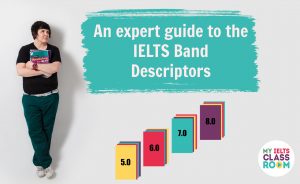
Step 2: Time the individual stages to identify your weak area
Once you know which task (or tasks!) is causing you problems with time, you then have to identify exactly which part of the writing process is slowing you down. Guess how we are going to do that? Yep, we are going to time ourselves again!
But now we are going to time the individual steps of the writing process.
Yes, we are going to break down the essay / report / letter into smaller parts to find out which ones you can do quickly and which are taking too much time. Look at the following guides – they will help you understand how much time you SHOULD be taking on each part.
IELTS Time Management: Essays
Plan : 5 mins
Write Introduction: 5 mins
Write Body Paragraph 1: 10 mins
Write Body Paragraph 2: 10 mins
Write Conclusion: 5 mins
Error Check: 5 mins
Which part of your IELTS essay is taking too long?
The solutions to your time management problem will depend on where you are currently taking too long:
- Planning? Then you need to focus on generating good ideas more quickly
- Introduction / Conclusion? If you are taking too long there, then you simply need to learn more about how to approach the start and end of each type of essay. Every IELTS essay has a different style of introduction / conclusion, but once you know them, they should take you very little time. (There are lessons on how to write introductions and conclusions for every type of essay in my writing course)
- Body Paragraphs? These are the most complex to diagnose. You need to dig deeper to locate the exact problem. Do you find topic sentences hard to write? Do you know how to build arguments? Are you struggling to find a good example ? Try your hardest to pinpoint the exact reason. Writing good paragraphs involves a number of skills – which one are you lacking? Also, is it your language that is the problem? If you are spending too long thinking about complex sentence structures of relevant lexis, you have to focus on upping your general language skills before continuing your preparation.
By the way, I have a really useful blog post about what to do if you run out of time while writing your essay in the real exam. Hopefully, if you follow the instructions here, this won’t happen to you, but it is always good to know what to do in an emergency! Click here to read !

IELTS Time Management: Academic Report
Find Key Features and Plan: 3 mins
Write Overview: 5 mins
Write Specific Details Paragraphs: 10 mins
Error Check: 2 mins
Which part of your IELTS report is taking too long?
- Planning? Well, you have probably not been taught how to quickly organise reports. Try to group similar items in the chart i.e. items that have big increases, or small increases
- The overview? IELTS uses the same key features again and again, so finding them shouldn’t take you too long if you have trained properly. If you struggle writing the overview, then you either need more practice or more training. (There are lessons on how to find key features for every type of chart in my Academic Task 1 course)
- Specific details paragraphs? Writing the specific details paragraphs should be the easiest part of the writing exam. They are purely descriptive and use the same language in every test. If you are finding this hard, you need to sit down and learn vocabulary and sentence structures for change charts / compare charts / processes / maps. Once you have this language in your tool box, these sentences should be very easy to write.

IELTS Time Management: Letter
Plan letter: 3 mins
Write Opener: 2 mins
Write Body of letter: 12 mins
Write Closer: 1 min
Which part of your IELTS letter is taking too long?
- Planning? This would surprise me! All IELTS letters are organised in the same way!!! Click here to watch my free lesson on organising letters.
- Openers and Closers? Again, these should take almost no time to write as they are predictable. Yes, you have to learn how to correctly open and close different types of letter (and this is a place where people go wrong all the time in terms of tone ) but once you know these set phrases, it should take just a few seconds to use them.
- The body? Well, again, if you have problems with the body, you probably have problems with language. Improving your lexis and grammar takes time, but it can be quicker in the long run to take some general English lessons and then come back to IELTS. Also, make sure that you address all of the bullets in the body of your letter- if you don’t, you will get a 5.0 for Task Achievement!
I hope you found this useful! IELTS time management is a big feature of the exam, so it is important that you take the time to get it right (!). Remember that I cover every aspect of all three writing tasks in my video courses, so if you are struggling with writing, I can help. Plus, the first three lessons in every course are free, so you can start learning today! 🚀
Just click here to get started
Posts navigation.
- All Posts ,
- Writing ,
- Speaking ,
- Listening ,
- Reading ,
- Grammar ,
- General Advice ,

Real experts, real lessons, real success!
If you like my blog, you'll love our IELTS Writing packages
- 45 hours of video lessons with a genuine IELTS expert that prepare you for ANY IELTS question
- Integrated grammar and writing skills lessons to help you reach 7.0+
- Hundreds of downloadable practice activities and model answers
Try our free video lessons today!
Free IELTS Advice?
Subscribe to our mailing list to receive regular tips, tricks and special offers!
The official IELTS by IDP app is here! Download it today.
- IELTS tests IELTS Academic IELTS General Training IELTS UKVI IELTS One Skill Retake LEARN ABOUT THIS TEST What is IELTS Academic? How can I book an IELTS test? Reschedule or cancel an IELTS test Find sessions WAYS TO TAKE IELTS ACADEMIC IELTS on paper IELTS on computer IELTS Online LEARN ABOUT THIS TEST What is IELTS General Training? How can I book an IELTS test? Reschedule or cancel an IELTS test Find sessions WAYS TO TAKE IELTS GENERAL TRAINING IELTS on paper IELTS on computer LEARN ABOUT THIS TEST What is IELTS UKVI? How can I book an IELTS test? Reschedule or cancel an IELTS test Find sessions WAYS TO TAKE IELTS UKVI IELTS on paper IELTS on computer LEARN ABOUT THIS TEST What is IELTS One Skill Retake? How can I book an IELTS test? Reschedule or cancel an IELTS test READ MORE ABOUT IELTS ONE SKILL RETAKE Who accepts IELTS One Skill Retake? FIND THE RIGHT TEST IELTS for study IELTS for work IELTS for migration
Get your results
Check your provisional IELTS results online and do more.

How to Manage Your Time During the IELTS Test
When you take IELTS, how you use your time can play an important part in your success. Learn effective ways to demonstrate your skills in our four-part guide, which covers each section of the IELTS test.
Content Tags
The IELTS test lasts for 2 hours and 45 minutes. While this might seem like a long time, many people find the test goes quickly. If you’re preparing for IELTS and wondering how you’ll manage your time, you’re in the right place. Keep reading for practical tips to help you master your time on test day.
Time management in the Listening test is especially important as you will only hear the recording once. The IELTS Listening test is 30 minutes.
During that time, you’ll listen to four recordings and answer 40 questions. If you’re taking IELTS on paper , you’ll have 10 minutes to transfer your answers at the end.
Predict missing information
Read the questions in the preparation time before each section to know what you are listening for. For example, if the question asks you to write down a venue like in the example below, you will need to listen for a place.
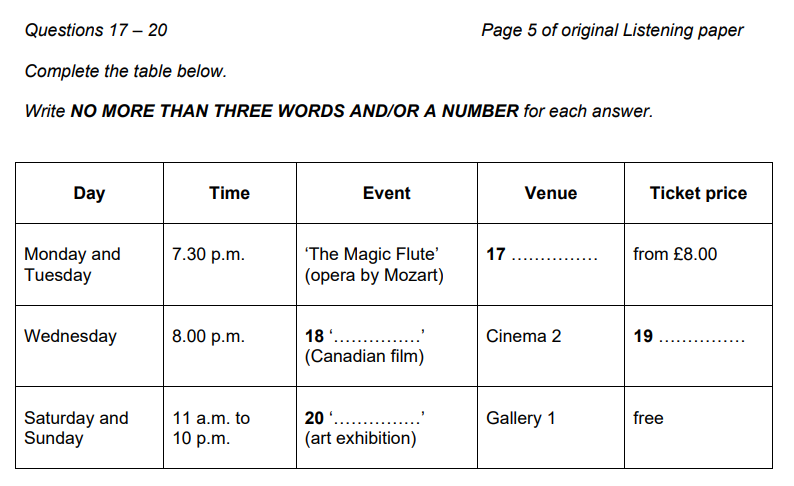
Source: Free IELTS Listening – practice sample questions | IDP IELTS
Prioritise understanding the content
Don’t worry too much about understanding every word. If you focus too hard on unfamiliar words, you might lose track of the conversation and miss what comes next.
Instead, pay attention to the overall flow of the talk and try to understand the main topics and information discussed.
In the IELTS Reading test you have 60 minutes to read 3 different texts and answer 40 questions. This is the same for both IELTS Academic and IELTS General Training although the text types differ. It’s important to note that in IELTS Reading no extra time is given to transfer answers.
Learn techniques for reading faster
Start by quickly skimming through the entire text to understand the gist (main idea or purpose). Don't spend time reading every sentence in detail as this can be time consuming. Focus on headings, subheadings and look for main points that describe the passage. This will help later with finding answers.
Identify key words in questions
Underline the key information words in the questions. If you’re taking IELTS on computer, you can use the highlight feature to do this . This will help you look for the answers in the text.
Can you identify the most important information in the sample Academic Reading question below?
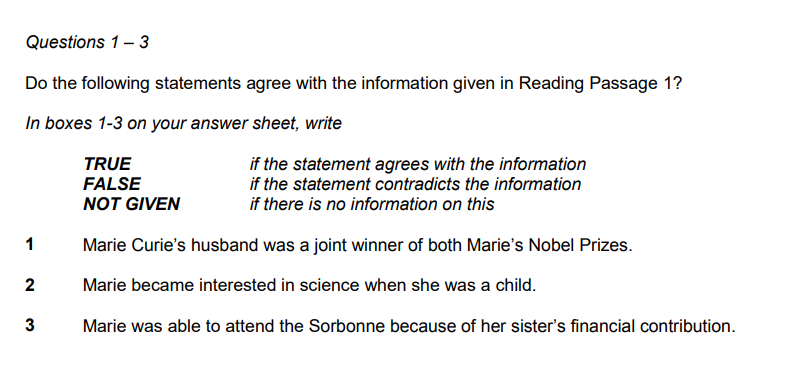
Source: Free IELTS Academic Reading sample preparation questions | IDP IELTS
Suggested answers:
Marie Curie’s husband was a joint winner of both Marie’s Nobel Prizes .
Marie became interested in science when she was a child .
Marie was able to attend the Sorbonne because of her sister’s financial contribution .
Click here to learn more about how to answer this question.
Although IELTS Academic and IELTS General Training include different types of Task 1 questions, the time allocation is the same. You have 60 minutes to complete two written tasks.
Set time limits for each task
Make sure you allow enough time to complete both tasks. As Writing Task 2 is worth more marks than Writing Task 1, we recommend dividing your time like this:
Don’t forget to leave time to review your spelling, grammar and punctuation at the end.
Plan your writing
Planning your writing tasks might feel like a waste of time – especially as you only receive marks for your writing, not your plans. But it may help you develop and connect your ideas, achieving a higher band score.
Before each task, take a few minutes to organise your thoughts and plan the main topic and supporting points for each paragraph.
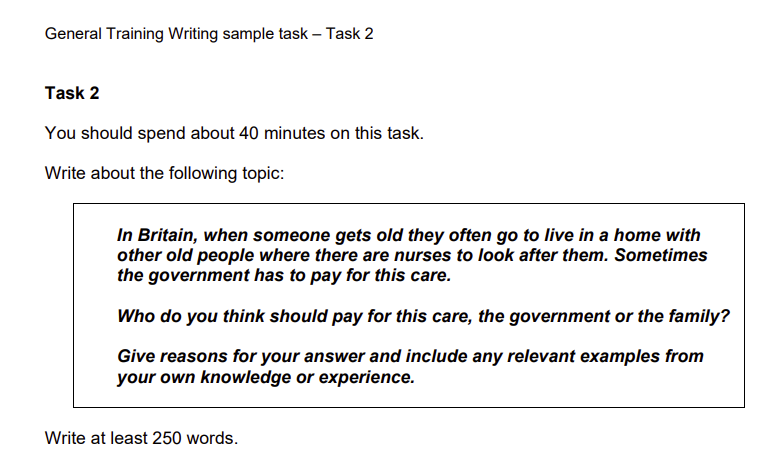
Source: Free IELTS General Training Writing sample questions | IDP IELTS
The Speaking test lasts between 11-14 minutes.
Understand the time allocations for Speaking questions
Here is the allocated time for each part of the Speaking test:
This is your chance to show your language skills to the examiner. Watch our videos of high-scoring test takers to see how they answered the questions in the time allocations above.
Make notes for Speaking Part 2
In Part 2, the examiner will give you a topic like the one below and ask you to talk about it for one to two minutes.
You’ll be given the speaking prompt on a card and a pencil and paper to make notes. You have exactly one minute to prepare. Make sure you use this time to organise your thoughts, so you don’t forget anything when it’s time to speak.
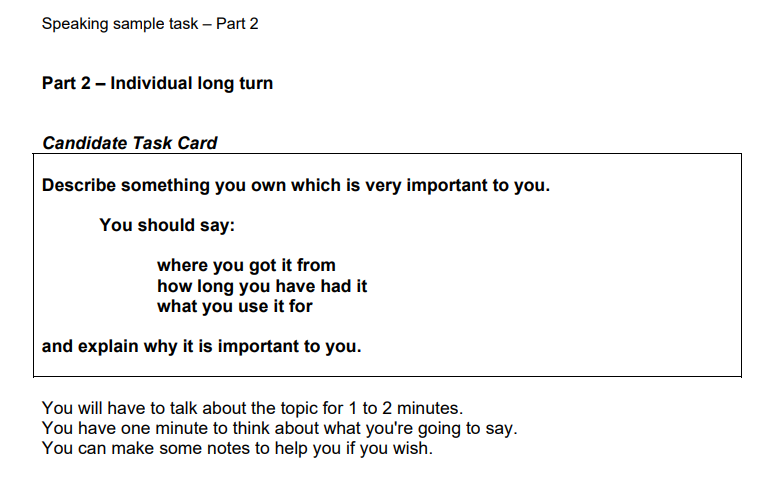
Source: IELTS Speaking practice questions and sample tasks | IDP IELTS
Final thoughts
Learning to manage your time during the IELTS test can make a big difference to your final score.
As you complete each test section, don’t forget to:
Leave time to check your answers at the end.
Answer every question.
Make a guess if you don’t know the answer (you may get it right!)
Get ready for success by putting these IELTS time management tips into practice before test day. Boost your confidence with our free timed practice tests .
Share this article
IELTS on computer - Academic: Your all-in-one guide to unlock study goals
IELTS Speaking: How to perform at your best in the part 3 discussion
IELTS Speaking: How to perform at your best in part 1
How to improve your spelling for the IELTS Reading, Listening and Writing tests
Vocabulary to help prepare for common IELTS topics
Understanding the IELTS Speaking band descriptors
IELTS Academic Reading test – what is summary completion?
Top 10 podcasts to help you improve your English
How to successfully book an IDP IELTS test
IELTS Speaking: How to perform at your best in the part 2 long turn
- Useful links
- Who accepts IELTS?
- News and articles
- IELTS Masterclass
- Your IELTS results
- IELTS General Training
- IELTS Academic
- IELTS Online
- IELTS by IDP app
- Find sessions
- Check IELTS results
- Middle East
- Netherlands
- New Caledonia
- New Zealand
- Papua New Guinea
- Philippines
- Saudi Arabia
- Solomon Islands
- South Korea
- Switzerland
- Legal notices
- Privacy policy
- Cookie policy
- Copyright 2024 IDP IELTS
- Skip to main content
IELTS Podcast
Pass IELTS with expert help.
Time Management fo the IELTS Exam: Strategies for Efficient Test-Taking
In this article we discuss time management strategies for efficient test-taking during the IELTS Exam.
Table of Contents
Familiarize yourself with the test format, practice under timed conditions, allocate time proportionately, skim and scan reading passages, plan and outline writing tasks, manage speaking time, keep track of your time, address your concerns.
Time management plays an important role in achieving success in the IELTS exam. Test-takers are faced with a limited amount of time to complete multiple sections and answer a range of questions.
Without proper time management strategies, it’s easy to feel overwhelmed and struggle to complete the exam within the allocated time. However, by employing effective time management techniques, we can optimize our test-taking efficiency and improve our overall performance.
Here are some ways to help you efficiently manage your time during the IELTS exam.
Understanding the structure of the IELTS exam is important, including the number of sections, types of questions, and time limits for each section. Figure out how you can allocate time to every section, with time left to spare. Knowing which section and questions are up next will help you predict your answers and manage time efficiently.
While preparing, simulate the test environment by practising with time constraints. Set a timer for each section and aim to complete it within the given time frame. This will help you develop a sense of pace and become comfortable with working under time pressure. This will also help you anticipate the amount of time to spend on a question, and you can use that to your advantage in your test.
Divide your time based on the number of questions and their level of difficulty. Prioritize questions that carry more weight or are more challenging. Avoid spending too much time on a single question and risk compromising other sections.
When tackling the Reading section, start by quickly skimming through the passage to get a general understanding. Then, use scanning techniques to locate specific information or keywords related to the questions. This approach saves time and helps you answer accurately. Reading the paragraphs in depth might take more time, so it is important for you to master your reading skills beforehand. Highlight the keywords and any important paragraphs you may come across.
Before writing your essays or reports, spend a few minutes planning and outlining your main ideas and supporting points. Based on the word count and length of the article, decide how you plan on making your essay scannable and interesting to the reader. This will provide a clear structure for your response and save time during the actual writing process.
During the Speaking section, ensure that your responses are concise and to the point. You will be given a stipulated amount of time to finish answering your question, so make sure to cover all the important points within that time. Practice giving concise yet comprehensive answers to the examiner’s questions. Use appropriate connectors to transition between ideas smoothly.
Keep an eye on the clock throughout the exam to track your progress. If you find yourself spending too much time on a particular section, make a conscious decision to move on and come back to it later if time permits. It is very important to finish all your sections and answer all questions.
Make sure you address any concerns in terms of your comfort, your seating arrangement during the test, and any external factors that may affect your test taking ability. If you need any sort of assistance during the test, make sure to inform the administrators in advance so you don’t have to worry about it and spend time on it.
Effective time management is a skill that can be developed with practice. By implementing these strategies and regularly timing your practice sessions, you can enhance your test-taking efficiency and achieve better results in the IELTS exam.
Amber and you
AmberStudent is an online student accommodation that helps you secure a home of choice on your study abroad journey. Having served 80 million students (and counting), AmberStudent is your one-stop shop for all your accommodation needs, with great choices for student housing in Australia and UK Accommodation . Amber helps with assistance, booking, and price match guarantees! Check out their Facebook and Instagram and stay connected!
Author’s Bio
Madhura Ballal plays many roles- a cat person, a food lover, an avid marketer, and a postgraduate from the National University of Singapore. You can find her painting and doing yoga, when she’s not playing one of the most critical roles that she has taken on- writing.
Significance of Time Management for the IELTS Exam
Table of Contents
Why it is important to manage time in ielts, time allotted for each section of ielts, tips and strategies for ielts time management.
Whether you are planning to study abroad, work in an English-speaking country, or simply want to assess your English language skills, appearing for IELTS is a vital step. One often underestimated yet crucial aspect of preparing for the IELTS exam is time management. Many students fail to effectively manage their time while taking the IELTS exam, often leading to low band scores. Therefore, in this blog, we will explore how time management can significantly impact your success in the IELTS exam and highlight some strategies to manage time effectively in IELTS.
Time management is paramount when taking the IELTS exam for several reasons. Each section of the test, Listening, Reading, Writing, or Speaking, comes with its unique set of time constraints. Let’s check why it is vital to manage time in all four sections of the IELTS exam .
In the Listening section , candidates are required to listen to audio recordings and answer questions based on what they hear. The catch is that the audio is played only once. This makes IELTS listening time management critical because missing a part of the audio or falling behind can lead to incorrect answers and a lower score. Therefore, when candidates manage their time well, they can stay focused, actively listen, and respond accurately.
The Reading section presents multiple passages and corresponding questions, so candidates must allocate their time efficiently across these passages to read, comprehend, and answer questions. Proper time management in IELTS reading allows test-takers to budget their minutes per passage and ensures they have time to review their answers.
In the Writing section, there are two tasks: Task 1 (Report Writing) and Task 2 (Essay Writing). Therefore, proper IELTS time management is crucial here as well. Candidates need time to brainstorm, plan, write, and review their essays because poor time management can result in rushed essays that lack coherence and depth, affecting the quality of their responses.
While less time-pressured than the other sections, the Speaking section still requires efficient time utilisation. Candidates have a limited amount of time to respond to prompts and questions from the examiner. Therefore, IELTS speaking time management is pivotal to ensure that candidates can express themselves coherently within the allotted time, allowing them to convey their thoughts clearly and confidently.
Here is the distribution of time allotted to each section of the IELTS exam.
Effective time management is crucial for success in the IELTS exam . Here are some valuable tips and strategies to help you manage your time efficiently during the test:
Skim and scan in reading
In the reading section, use the "skim and scan" technique. Quickly skim through the passage to get an idea of the content, then scan for specific details mentioned in the questions. This approach can save you time compared to reading the entire passage in detail.
Set time limits
Set strict time limits for each section and stick to them when practising. This simulates the real test conditions and helps you develop a sense of how much time to allocate to different tasks within each section.
Prioritising high-value tasks
In IELTS, some questions or tasks carry more marks than others. Time management helps you identify and prioritise these high-value tasks, wherein by allocating more time and effort to tasks with greater point potential, you can maximise your overall score.
Highlight or underline key information
In both the reading and listening sections, use your provided pen and question paper to underline or highlight important keywords and information. This can help you locate answers more quickly.
Attempt every question
If you're stuck on a question, make an informed guess. In IELTS, there is no penalty for incorrect answers, so it's better to guess than to leave a question unanswered.
Practice makes perfect
Last but not least, time management is a skill that can be honed through practice. Practising mock IELTS test helps you become familiar with the time constraints of each section.
Read instructions carefully
In the rush to complete tasks, candidates often overlook important instructions. Make it a habit to read instructions carefully; this can save you from unnecessary mistakes and time wastage.
Allocate specific time for each task
In the writing section, allocate time wisely. Spend about 20 minutes on Task 1 and 40 minutes on Task 2. It's essential to have enough time for planning, writing, and reviewing your essays. For other sections as well, divide the number of questions with time and spend time on each question accordingly.
Review and proofread
Always review your answers or essays for errors or missed points in the last. In the writing section, proofreading can make a significant difference in the quality of your response.
In conclusion, time management is a critical component of IELTS exam preparation. It ensures that you can showcase your English language skills within the strict time limits to the best of your ability. By practising time management strategies and allocating your time wisely, you can reduce stress, maximise your performance, and increase your chances of achieving the IELTS score you need for your academic or professional goals. So, remember, in the world of IELTS, time is of the essence!
So, if you are appearing for the IELTS exam and want to plan your time for the test strategically, we recommend you sign up for our IELTS Courses designed by our experts. If you need further guidance, please contact Prepare IELTS (PI) expert counsellors. Our team of education experts is dedicated to assisting you in the best possible way for the IELTS exam. You can also get a one-on-one counselling session online via our platform. Contact us at [email protected] or call us at +91 9773398388.

Boost your IELTS Speaking score
Latest News

How to use Adjectives and Adverbs in your IELTS Grammar test?
2024-04-25 16:40:19

Describe a time when you felt bored IELTS speaking cue card
2024-04-24 17:22:08

IELTS Speaking test - Most commonly garble words
2024-04-17 13:04:02

IELTS Score for New Zealand
2024-04-16 14:56:18

IELTS Score You Need for Admission in Europe
2024-04-13 12:34:11

Top Universities Accepting IELTS Scores
2024-04-12 15:54:24

IELTS Writing Vocabulary - Topic Wise Word List
2024-04-11 15:43:35

Describe a Time When You Needed to Use Your Imagination - IELTS Speaking Cue Card
2024-04-11 14:33:23

MBA Colleges Accepting IELTS Scores
2024-04-10 16:04:57

Describe a piece of good news - IELTS speaking cue card
2024-04-10 15:04:29

Related Blogs
A php error was encountered.
Severity: Notice
Message: Undefined variable: tips_category
Filename: Blog/blog_detail.php
Line Number: 383
File: /home/prepareieltsexam/public_html/application/views/frontend/Blog/blog_detail.php Line: 383 Function: _error_handler
File: /home/prepareieltsexam/public_html/application/controllers/Tips.php Line: 545 Function: view
File: /home/prepareieltsexam/public_html/index.php Line: 316 Function: require_once
Severity: Warning
Message: Invalid argument supplied for foreach()

How to use Adjectives and Adverbs in your IELTS Grammar test? Since Indian students are writing and speaking in English with Indian accent, with not much exposure to foreign accent, it can be the cause of
- (5.0 /152 votes)

IELTS Speaking test - Most commonly garble words Since Indian students are writing and speaking in English with Indian accent, with not much exposure to foreign accent, it can be the cause of

IELTS Score for New Zealand Since Indian students are writing and speaking in English with Indian accent, with not much exposure to foreign accent, it can be the cause of

IELTS Score You Need for Admission in Europe Since Indian students are writing and speaking in English with Indian accent, with not much exposure to foreign accent, it can be the cause of
Registration Now


Share Your Feedback
Free 1 day ielts class with our head of ielts program nick carey.
Register on the spot and get 10% Discount on IELTS fee!
Achieve IELTS Success with Our Comprehensive Classes, proven teaching methodology, and Experienced Teachers.
Affordable Fee Structure
Experienced & Certified Trainers
Interactive Class Activities
Friday, 2nd Feb 2024
11:00 AM - 4:00 PM

Time Management Strategies for the IELTS exam
As IELTS examiners, one of the hottest feedbacks that we get from IELTS candidates is about the lack of time in the IELTS test. In the Listening test, there is not much time to read the questions before the recording begins and also to review the answers after each part. In the Reading test, the articles are lengthy and complicated, and it seems impossible to complete all the questions in an hour, and finally, in the Writing test, managing time so both essays can be completed and reviewed in the given time is quite a challenge. In this article, I will look at smart ways to manage your time in the IELTS exam.
Time Management in the Listening Test
You will be given some time (around 30 seconds) to read a set of questions, for example, the first 4 or 5 questions in part 1 or 10 questions in part 4.
It would be best if you used this time to read the questions, highlight keywords and pay attention to the words before and after each gap in gap-filling questions. This time is very short, so you only have a few seconds to read each question. Therefore you should prepare and learn how to get the gist of the question in such a short time. This requires focus and practice, therefore make sure that you always time your practices when you are preparing for the IELTS exam.
Remember that it is not possible to thoroughly understand every question in such a limited time, therefore, avoid spending too much time on any question and just quickly go through the questions by having just an overview of them.
Managing time at the end of each part is also very important. This valuable time should be used to double-check the answers. Since there is not enough time to review every one of the questions, it is essential to mark any answer that you are unsure of when you are answering the questions. It would help if you also used this time to check your answers to make sure that you have not made a spelling or grammatical mistake.
In the Paper-Based IELTS exam, you will be given a 10 minute transfer time at the end of the listening test to transfer your answers to the answer sheet. Use this time wisely; otherwise, you will end up with some answers still not transferred when the time is up.
In the Computer-delivered IELTS exam, however, you don’t have this 10 minute transfer time. Instead, you’ll be given 2 minutes to check all of your answers. Use this time to review the uncertain answers, and to double-check spellings and grammatical correctness of your answers.
Time Management in the Reading Test
Now, the reading test is where you really face the time challenge.
The first thing you need to be aware of is that not all of the three parts in the Reading test are equal in importance and difficulty. The text and questions in the first part are easier than the other two. The best way to approach this part is to begin by reading the topic sentences only. Topic sentences are usually the first sentence in a paragraph. The topic sentence (or sentences) tells us what the paragraph is about and introduces the topic of the paragraph. The next sentences in the paragraph explain the topic sentence, expand on it, or give examples.
The next step is to go straight into the questions, and since you already know where the answers can be found in the text, you can easily find the relevant part of the text and identify the answers.
The second and third parts in IELTS Reading will contain more challenging texts and questions and therefore, will require more detailed reading. The sentences are usually longer and more complex, and if you are careless, may get thrown off by many distractors that are placed within the text and infer incorrect information.
Even though you have 60 minutes to answer the Reading test, before you begin, try to imagine that you only have only 50 minutes to answer all of the questions completely. You might say that you are already short of time, and now we are cutting it further! But remember that if you are aiming for a high band score, you need to leave 10 minutes in the end to check all of your answers. This is where many candidates get it wrong. This review is not just a simple spell-check because you will need to read the questions once again and quickly answer them in your heart. Ask yourself if your answers make sense in the question? Are the completed sentences grammatically correct? Has a distractor mistaken you?
Remember that you only have 60 minutes to answer 40 questions. That means that excluding the reading time, you have only 90 seconds per question! So don’t waste time on questions you can’t find the answer to. Mark them, skip them, move on and come back to them later.
Now let me name a few pitfalls which can affect the way you manage the time to answer the Reading questions:
If you read the passages carelessly or without concentration, finding answers will become very difficult, and you will consume more time reading the passages over and over again because you can’t easily find the answers.
If you get stuck on a particularly challenging question, you will lose time that can be used to answer simpler questions. Remember that all questions have equal importance, so it is essential that you can answer all of the easy questions instead of a few difficult questions.
If you read slowly, or you do not pay attention to understand important parts of the paragraphs, you will not be able to answer the questions correctly within the time. Therefore you should work on your pace and focus before the IELTS exam.
Most of IELTS candidates confirm that even getting an overview of the passages in the time available is a challenge, and this is only half the story because you then need to answer all of the questions within time. This means that you must absolutely practice reading and answering the questions in the time allowed as much as you can.
Read Also : Four Strategies that help you in IELTS reading
Time Management in the Writing Test
I see so many candidates wasting time in the writing exam because they don’t know what to write. They spend a long time thinking about their structure and plan for each task. Remember that before you even attend the exam, you should already know the most common structures and content of each task in the IELTS Writing test. These are some of the common types of IELTS essays you may get in the exam:
- Agree / disagree
- Advantages & disadvantages
- Causes (reasons) & solutions
- Causes (reasons) & effects
- Discuss two opinions
- Problems & solutions
Now while not every essay will fit one of these patterns, many do.
For most IELTS candidates, the temptation is to begin writing immediately. But then you are the danger of having ideas that are not well thought out and a poorly organised essay. Also, you may not answer the question correctly if you do not spend some time analysing it. That is the reason why you should spend around 5 minutes at the beginning of task 1 and 10 minutes at the beginning of task 2 doing the following:
1) Analyse the question 2) Brainstorm ideas 3) Plan the essay structure using these ideas
To be successful in the IELTS writing test without running out of time, you need to practice the process of analysing, brainstorming, planning and writing in 60 minutes as many times as possible before the exam day. The more practice you have, the better you will become.
One last thing: don’t write too much. There is no point writing 300 words of a rushed essay with a lot of grammatical mistakes and bad structure if you can write a coherent essay which is 260 words that is well organised and gives you enough time to check it for errors.
As I mentioned, the key to successful time management is practice. The best practices are those which simulate the actual IELTS exam and give you a sense of what you should expect on the test day. IELTS tutors and examiners always suggest taking IELTS mock tests as practice for time management. Not sure where to find high quality IELTS mock tests? TakeIELTS.net’s mock tests are the most popular and trusted online IELTS mock tests in the world.
Practice time management by taking full-length online IELTS mock tests
Share this post, related posts.
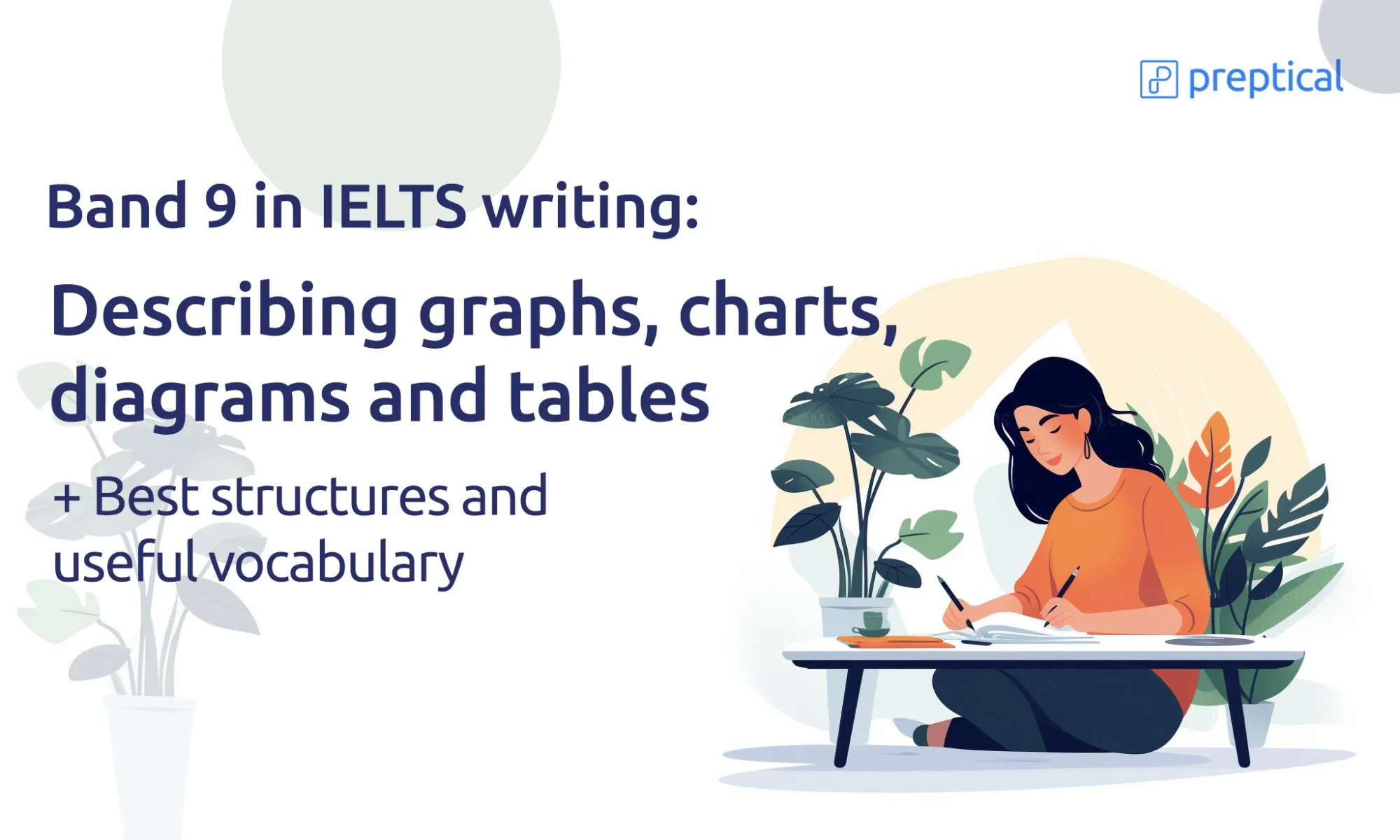
Describing graphs, charts, diagrams and tables for band 9 in IELTS writing + Best structures and useful vocabulary

15 Sentence Structures for Band 9 Writing in IELTS + Sample passage

How to Master Matching Questions in the IELTS Listening Test

Top 10 Templates for IELTS Speaking Test to get band 9
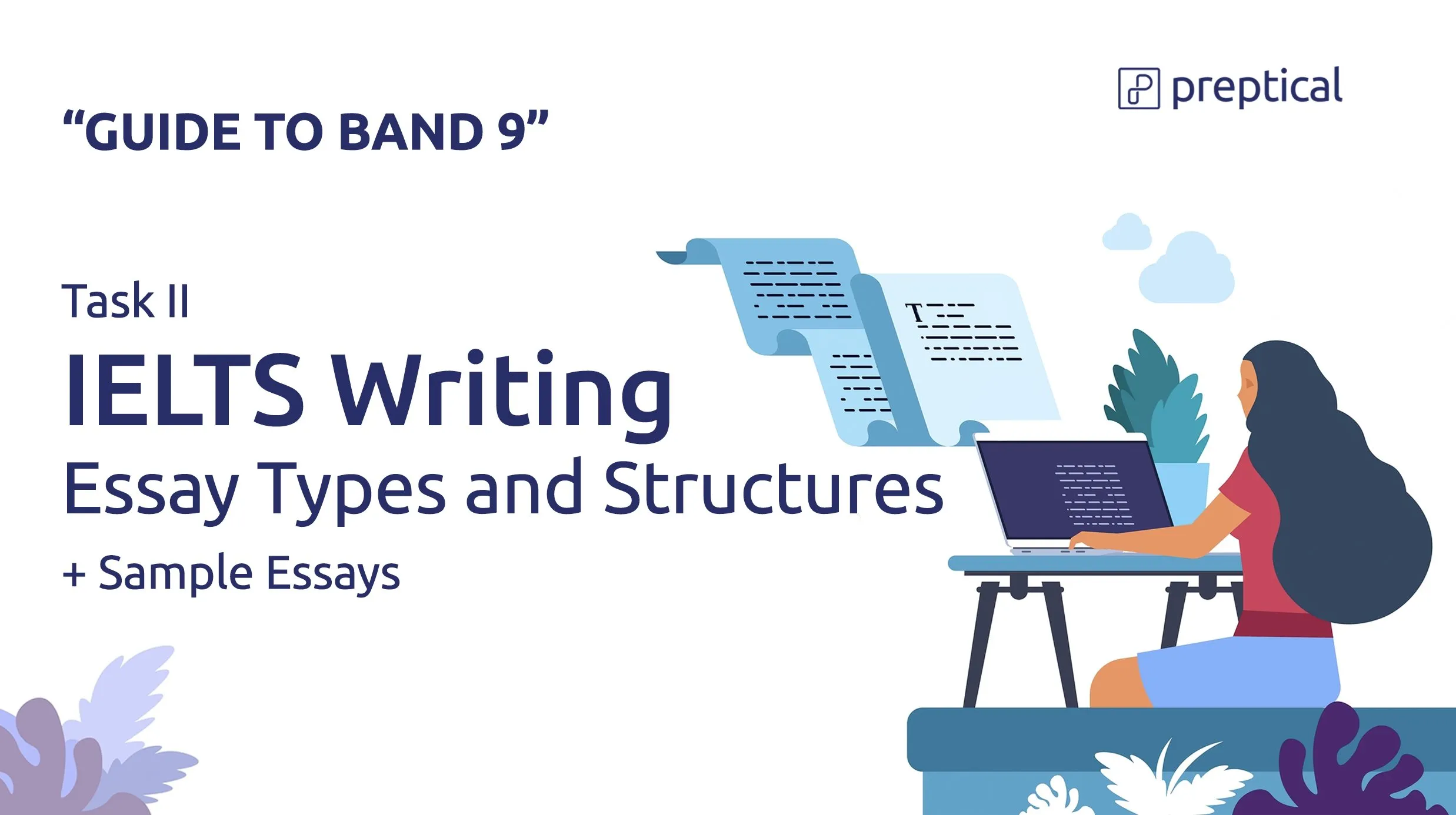
IELTS Writing Task 2 Essay Types and Structures + Samples
Leave a comment cancel reply.
IELTS Writing Exam Time Management Strategy For Writing Task 1
July 30, 2015
A good IELTS writing exam time management strategy is a very important skill for IELTS candidates. It is something that you need to practice in order to do well on the day of your IELTS exam.
To improve your IELTS writing exam time management skills you will need to practice doing different tasks in a set amount of time. Practice at least one of these tasks on a daily basis. Over time you will find that things become easier and faster and your skill will also increase.
Know Your Structures For Each Writing Task
I see so many students wasting time in the writing exam because they don’t know what to write. They spend a long time thinking about their structure and plan for each task. You should already know the structure and content of each task before you even get into the exam.
Here is an example of structure for writing task 1 to describe tables, bar charts, line graphs or pie charts. The structure will be a little different for describing a process or diagram.
Paraphrase: What does the chart show? Don’t use the same words as the question. Overview: What is the pattern or trend that is clear? Don’t give details just describe the most obvious pattern.
Topic Sentence: Which group of data will you describe first? What is the pattern of this data? Details: What were starting figures? How much change was there? What were the highest and lowest amounts? You may need to write 2 or 3 sentences giving details. Comparisons: Use some comparative language to compare different groups of data or the same data over time.
Topic Sentence: Which group of data will you describe next? What is the pattern of this data? Details: What were starting figures? How much change was there? What were the highest and lowest amounts? You may need to write 2 or 3 sentences giving details. Comparisons: Use some comparative language to compare different groups of data or the same data over time.
Know Your Time Limits
Now that you know what you need to write, you need to learn how long you have to write each part. In the structures above we can see we have 3 paragraphs for writing task 1. Look at the time limits I have given below.
- After 5 minutes you should have completed your planning and have written your first 2 sentences.
- After 11 minutes you have completed another 3 or 4 sentences for paragraph 2.
- After 17 minutes you should have finished the writing task.
- Spend the final few minutes re-reading and correcting any small errors in spelling or grammar.
Do not worry if you can’t do this now. It takes time and practice to be able to write quickly and well. The important thing is that you know your structures and time limits. Start timing yourself every time you do a writing task. Make a note of how quickly you complete each paragraph. Your goal is to be able to complete task 1 in 20 minutes or less.
Focus On One Thing At A Time
The next step in this IELTS writing exam time management strategy is to break each task into smaller pieces. Don’t waste time thinking about everything you are going to write. Just think of the next sentence then write it. Don’t worry about it. Don’t write a draft. Don’t re-write anything (until the end).
Have a general idea of what you are going to write for each paragraph. Then start writing. Write the first sentence of the first paragraph. Then write the second sentence. Continue sentence by sentence. At the end, read through, review and make any corrections.
Practice Each Part Of The Writing Task
To improve your IELTS writing exam time management skills you need to practice them. Spend time each day timing yourself when completing a writing task. If you don’t have enough time to sit down and do a complete task practice writing one paragraph.
If you have only 10 minutes to spare practice writing an introductory paragraph. Analyse the question, paraphrase the question and write a general statement about the data. Then read what you have written and make any corrections.
Your aim is to practice so that it becomes easy and fast. The more you practice the faster you will be able to think and plan and this will give you more time to write.
Has this IELTS writing exam time management strategy been useful for you? Do you have any questions or suggestions on how to improve this strategy? Please leave your thoughts and comments below.
Practice your english and write a comment.
Copyright © 2013 - 2018 · TheIELTSCoach.com · All Rights Reserved
- Privacy Policy

Press ESC to close

HOW TO MANAGE TIME DURING IELTS
Time management is one of the most crucial skills that we all need to learn. Managing one’s time well not only allows us the freedom to attend to all our priorities but also leaves us feeling satiated from within.
Time management refers to the ability of balancing out all tasks that you’ve set for the day and doing each one of those properly. They make us manage our time effectively and achieve the results that we want.
IELTS needs to be completed within the time that’s allotted and managing one’s time during this test becomes a real challenge for most candidates.
All sections of the IELTS require you to manage your time properly so that you are able to ace each one of them and bring up your overall band.
Let us discuss ways in which we can manage our time prudently during each of the sections- Writing, Reading and Listening. The Speaking section is relatively easier to manage as you are able to time yourself as per the examiner’s instructions.

TIME MANAGEMENT DURING WRITING
The Writing section of the IELTS asks you to write essays that are mostly discussion based. Being aware of the pattern and structure of these essays will prevent you from spending unnecessary time on brainstorming.
Practice writing on various related topics before the main test and do not begin writing immediately after you’ve read the questions. Take some time to reflect on the topic that’s provided to you and then write a well-organized essay.
Planning the structure before both the questions will help you in writing effortlessly. Do not exceed the word limit for you will not be awarded extra points and you may also miss out on other questions.

TIME MANAGEMENT DURING READING
In the Reading section, read the title of the passage that’s provided to you. Read the entire passage once and pay close attention to lines that are laden with information.
The second and the third part of the Reading test are slightly more difficult. You will have to read them carefully and minutely.
You are given an hour but try to use only 50 minutes to complete the entire section. Those extra 10 minutes should be spent revising the entire section.
While you’re scanning the paragraphs, make sure that you are not distracted. Reading each and every line with utter care is important so that you do not have to keep re-reading the same passages all over again in search of answers.
Ample practice will come to your rescue during the main test.

TIME MANAGEMENT DURING LISTENING
Here, 40 questions come from 4 sections. The student will have to hear recordings /audio clips attentively in order to answer all those questions.
The types of questions that are asked are mainly short answers, multiple choice and sentence completions. A dialogue that occurs between two people needs to be heard as questions from the exchange that takes place are asked.
There are two dialogues and two monologues and questions based on the situations presented are asked.
If you allot 1.5 minutes to each question, you will be able to complete your test on time.

Time Management during IELTS preparation is one of the most pivotal skills that you will learn. It will allow you to appear for all sections in a stress-free manner.

Leave a Reply Cancel reply

Share Article:
You might also like

Describe Something Important that has been Kept in Your Family: A Cue Card Sample Topic for IELTS Speaking

How to Use an IELTS Calculator? Calculate Your Overall IELTS Exam Score

What is a Good IELTS Score? Is 7.5 a Good IELTS Score? Here’s All You Need to Know
Other stories, all about sop and lor, 5 blunders while attempting the ielts listening test.

Shopping Cart
No products in the cart.
IELTS writing task 2 online course
General overview.
- Types of essay in IELTS writing task 2
- Main topics of IELTS essay
- How to generate ideas on IELTS Writing Task 2
- How to Write Examples in IELTS Writing Task 2?
- How Many Paragraphs Should I Write in IELTS Essay?
- How many points or examples should I write in an IELTS essay?
- How to Write a Conclusion on IELTS Writing Task 2?
- Where to Take Notes in IELTS Writing Task 2?
How to Manage Time on IELTS Writing Task 2?
- Tips for preparing for IELTS essay writing task 2
- IELTS 8+ band essay Everyone wore clothes according to their culture IELTS 7 band essay
- IELTS advantage and disadvantage essay
- conforming to the culture of the country you are visiting IELTS essay
- Power of advertising in business IELTS essay
- Successful sports professionals can earn a great deal IELTS 7 band essay
- Many countries spend a lot of money on major sports competitions IELTS 7 band essay
- Modern inventions essay IELTS Band 7
- Countries should try to produce all the food IELTS 7 band Essay
- School children are taught to be better than their classmates IELTS Essay
- Success in life comes from taking risks essay IELTS Writing
- How can we learn about other countries IELTS Essay
- Living alone IELTS essay
- Giving presents as an important way to show care to family
- University students should pay all the cost of their studies essay
- Children today are too dependent on computers IELTS Essay
- Nowadays more people are living by themselves IELTS Essay
- Modern technology has made shopping easier IELTS Essay
- Tourists visiting places where conditions are difficult IELTS Essay
- Online currencies have become more common IELTS Essay
- As the number of cars increases, more money has to be spent on road systems
- Many people today would argue that cinemas are becoming irrelevant
Writing Correction

IELTS Vocabulary Builder Series
Download IELTS Vocabulary Builder book series for free!
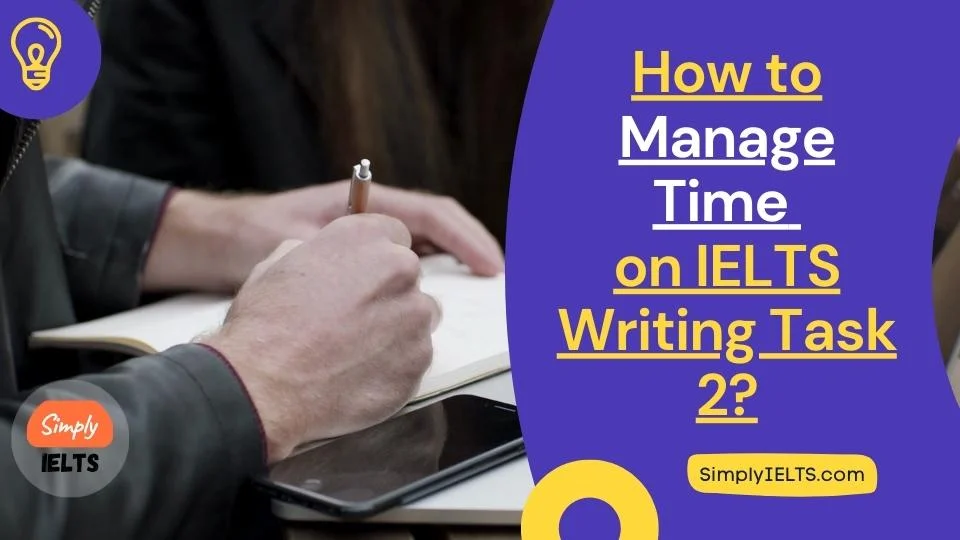
The IELTS Writing component sounds very simple. “Just write two things in an hour? I could do it in no time!” Only when the students start practising essay writing, do they hit the brick wall. “How can I write a whole essay in just 40 minutes? How to manage time?” is the first question that pops in their head.
I have seen many students lose confidence as it dawns upon them that they don’t know how to complete the IELTS essay in 40 minutes.
This blog has all the tips and tricks I tell my students to write the best essay they can in the period.
The simplest way to manage time on IELTS essays is to divide the essay into simple paragraphs and standard structures. And then divide time frame of 40 minutes to complete those tasks. Further, practise the breakdown and tweak it to your writing and thinking speed. Make sure that the whole process does not take more than 40 minutes; the time given to write IELTS Writing Task 2.
The age-old method of writing an essay
How many times have we heard our secondary school teachers tell us “think, write, and edit is the way to go”? Alas, it is this very technique that kills our time in the exam. In theory, this process is very simple. First, think of the points you want to mention in the essay.
Then write the essay – from introduction to end paragraph. Finally, edit the essay. Check for grammar, sentence structure and make sure that the points make sense.
Problems with the traditional way of writing an essay
Very frankly the method is not that bad for writing IELTS essays, letters or reports. However, it is best suited for writers who believe in it and persist with it for a long time. In simple terms, most IELTS students cannot deal with it if they are looking for faster results.
Problem 1: Too much time wasted in planning
So, most of the IELTS students, who wish to adopt this method, realise that they take too much time to think about the topic. And then they are not left with much time to write.
Specifically, this happens as test-takers feel they will be able to score well only if their essays have big words and sentences. So, they wait and wait until they realise that they must complete the writing task.
Problem 2: Mixing the three tasks: think, write and edit
Another problem is that even if students finish thinking and start writing the IELTS essay, they constantly feel an urge to replace the words or sentences that they have used with a bit sophisticated ones.
As a result, they start editing their essays while writing. Such actions lead to confusion and hamper test-takers’ time to complete the essay.
Solution: modified method
Step 1: breakdown of the ielts essay task.
Now instead of attacking all whole essay, what if we can attack the smaller tasks. We must break down the 40 minutes given to us by IELTS into smaller chunks. So, let’s say we must include the following components in an IELTS essay.
- Introduction
- Body Paragraphs
- End paragraph
Now instead of focusing on the whole essay task, we will focus only on writing one of the components at a time. When we attribute time chunk to each of these smaller tasks, we will successfully finish thinking, writing and editing in the given time frame.
So, from My experience, I can say that allotting time limits to these smaller tasks as follows will help you immensely.
- Write the Introduction: 5 minutes.
- Think and write Body Paragraphs: 25 minutes.
- Write End Paragraph: 5 minutes.
- Check and Edit Essay: 5 minutes.
If you calculate the whole time taken, it will amount to 40 minutes.
Step 2: Practice the Breakdown.
Students must understand that they have to think and write the body paragraphs in the 25 minutes allotted. On average students should take five minutes to come up with the points.
The essay needs 4 points and 2 examples, which should be thought and jotted down in those five minutes. It would take a student with average English proficiency around 10 minutes to write 2 points and 1 example in each paragraph. The key to using this breakdown is practice.
Write as many IELTS essays as possible before you apply for the exam. This will allow you to get the hang of the breakdown. You may realise that you need 10 minutes to plan your points but only 15 minutes to write the body paragraphs.
Such individual adjustments are only possible when the student has used this method multiple times.
Step 3: Write in Flow.
The most important thing to remember while writing for IELTS is to write in a flow. Often students start writing the body paragraph and come up with an even better idea once it’s done. This leads to the students erasing the paragraph and writing all over again.
This is a waste of time because IELTS does not care about the quality of points as long as they make basic sense. The student should focus on the quality of communication instead of intelligent points. It is okay to make mistakes in the first draft of the essay.
That’s why we have kept 5 minutes, in the end, to make edits and fix spelling mistakes. This will also help you check the flow of the essay and add connectors wherever required.
After teaching IELTS to more than 3500 students, we believe that most of the students are comfortable with this method. Ensure that you plan your essay well. Understand, we can write well only if we plan well. Also, don’t shy away from further modifying this technique to suit your writing style.
Your email address will not be published. Required fields are marked *
Save my name, email, and website in this browser for the next time I comment.
Privacy Overview
There was a problem reporting this post.
Block Member?
Please confirm you want to block this member.
You will no longer be able to:
- Mention this member in posts
Please allow a few minutes for this process to complete.
Download Book for free
Ielts vocabulary builder.

IELTS Time Management: Top Tips and Strategies in 2023
Introduction.
IELTS, the International English Language Testing System, is a crucial exam for many people who want to study, work, or immigrate to English-speaking countries. Time management is a critical aspect of IELTS preparation and success. In this article, we will discuss the importance of time management, the IELTS exam format, and practical strategies for effective time management.
Importance of Time Management

Effective time management is essential for IELTS success, as it ensures that you can complete all sections of the exam within the allotted time, and it also helps to reduce stress and anxiety during the test. Good time management skills will not only improve your IELTS score but also benefit you in various aspects of life, such as education, work, and personal growth.
IELTS Exam Format
Understanding the IELTS exam format is the first step towards managing your time effectively. The IELTS exam consists of four sections:
The Listening section lasts for 30 minutes and includes four recorded monologues and conversations. You must listen carefully and answer 40 questions based on the recordings.
The Reading section lasts for 60 minutes and comprises three passages. You must read the passages and answer 40 questions.
The Writing section lasts for 60 minutes and includes two tasks. In Task 1, you must describe a visual representation of data (such as a graph, chart, or diagram). In Task 2, you must write an essay in response to a given prompt.
The Speaking section lasts for 11-14 minutes and includes a short conversation with an examiner. You will be asked to discuss various topics and express your opinions.
Time Management Strategies
Here are some practical time management strategies for IELTS preparation and success:
Preparing a Study Schedule
Create a study schedule that covers all four sections of the IELTS exam. Allocate specific time slots for each section, and ensure you maintain a balance between study and breaks.
Task-wise Time Allocation
For each section of the IELTS exam, you should allocate time according to the number of tasks and their difficulty. Here’s a suggested time allocation for each section:
Spend approximately 30 seconds to 1 minute per question. Use any extra time to review your answers.
Allocate around 20 minutes per passage, which means about 1 minute per question. Use any remaining time to review your answers and confirm your answers.
For Task 1, allocate approximately 20 minutes, and for Task 2, allocate 40 minutes. Make sure to spend some time planning your response before you start writing.
Practice speaking for the full 11-14 minutes to get accustomed to the time limit. Rehearse various topics to improve your fluency and confidence.
Prioritizing Tasks
Prioritize tasks based on their difficulty and importance. Focus on improving your weaker areas while maintaining your strengths.
Practicing Time Management Skills
Regular practice is key to mastering time management for the IELTS exam. Take timed practice tests and evaluate your performance to identify areas for improvement.
Managing Anxiety
Anxiety can significantly affect your time management during the exam. Develop relaxation techniques, such as deep breathing or visualization, to stay calm and focused.
Effective time management is essential for IELTS success. Understanding the exam format, creating a study schedule, allocating time wisely, prioritizing tasks, practicing regularly, and managing anxiety will help you maximize your score and achieve your desired outcome. Good luck with your IELTS journey!
1. How long is the IELTS exam?
The IELTS exam lasts for approximately 2 hours and 45 minutes, with Listening (30 minutes), Reading (60 minutes), Writing (60 minutes), and Speaking (11-14 minutes) sections.
2. Can I use a watch during the IELTS exam?
Yes, you can wear a watch during the IELTS exam. However, it must be a simple analog or digital watch without any smart features, alarms, or noise-making capabilities.
3. How can I improve my time management for the Reading section?
To improve your time management in the Reading section, practice skimming and scanning techniques, learn to identify keywords and main ideas, and practice answering questions within the suggested time limits.
4. How can I manage my time better during the Writing section?
For the Writing section, allocate time for planning, writing, and reviewing your responses. Develop a clear essay structure and stick to it. Practice writing under timed conditions to improve your speed and accuracy.
5. How can I practice time management for the Speaking section?
To practice time management for the Speaking section, rehearse speaking for the full 11-14 minutes. Record yourself speaking on various topics and review your performance to identify areas for improvement.
Leave a Reply Cancel reply
Your email address will not be published. Required fields are marked *
This site uses Akismet to reduce spam. Learn how your comment data is processed .

Mini Lesson: IELTS Essay Time Management
Lesson objective: Learn the writing process you can follow to build any type of essay and how long to spend on each part of your essay. Read the example question and answer below and the teaching points under that.
Some people think that people who are over 60 years old should retire and stop working.
To what extent do you agree or disagree with this statement?
It is the belief of some people that when a person reaches the age of sixty they should retire. I am of the opinion that this is not the case and that a person should continue working for a as long as they want or need to. This essay shall outline the reasons behind this point of view. (58 words)
When a person reaches the age of sixty they can potentially still be very active and healthy individuals. Such people have a lot to offer a company and they may wish to end their careers at such an age. With ever improving medicinal practices and healthcare, people are remaining healthier for longer and are therefore capable of working for longer. Being forced to retire may negatively affect a person’s mental health and self-esteem. For instance, the UK Office for National Statistics suggests that those people who retire early without a purpose for their retirement are at a 57% greater risk of a heart attack in the first five years of retirement compared to those who retire later when they choose to. (121 words)
Allied to this, companies would lose valuable assets for no real reason. A person who is sixty often has a great deal of experience in a company which can be used to train other members of staff or to offer advice to management when appropriate. Losing this experience unnecessarily could therefore have a negative effect on many companies as they may need to pay more money to recruit new people with less experience. Indeed some companies such as Walmart are famous for valuing older employees as they make fewer mistakes and are generally more reliable than their younger counterparts. (99 words)
To summarise, the valuable experience of older employees allied to the potential negative impacts on those people if they are forced to retire mean that forcing people to retire against their will is not a positive step forward. Governments should ensure that everyone has the right to work as long as they are physically and mentally capable of doing so safely. (61 words)
Total: 349 words
Teaching point: Normally 4 main paragraphs is enough for most IELTS essays. An introduction of about 50 words, two body paragraphs of about 90 words each, and a conclusion of about 30 words. you should manage your time as follows:
- 5 minutes for analysing the question and planning your essay.
- 5 minutes for writing your introduction.
- 20 minutes for writing your 2 body paragraphs.
- 5 minutes for writing your conclusion
- 5 minutes for checking your essay.
Even if you are short on time always add a conclusion as the completes the structure of your essay and ensures you won't lose too many marks for coherence and cohesion.
Never skip the final checking part either as it crucial to eliminate as many errors as you can from your essay. in fact this last check can make the difference between getting a higher band score and not!
Practice this process until it becomes natural and you will perform confidently on test day!
Now, go back to the IELTS Writing Task 2 Essay main page here for more lessons.
IELTS Writing Task 1 (Academic)
Discover how to describe all types of visual data that you may see in this part of the test.

IELTS Listening
Sshhhhh! Listen closely, here are some valuable tips, techniques and strategies for maximising your listening band score.

IELTS Writing Task 1 (General)
Discover how to write in the correct format and tone for this part of the test.

IELTS Speaking
Learn 'what' to say and 'how' to say it in each part of the test to impress the examiner.

IELTS Writing Task 2
Discover the 5 step process for writing band 7 essays in 40 minutes or less.

IELTS Reading
Here we reveal the best method for completing each part of the reading test.
Copyright 2017 - IELTS Freeway - All Rights Reserved
Powered by OptimizePress 2.0

Get Your Transcripts Today!
Make sure you understand every word you hear on All Ears English.
Bring your English to the advanced level with new vocabulary and natural expressions.
Subscribe and get the transcripts delivered by email.
Learn to speak naturally with the American accent.
Related Posts
- IELTS Academic Writing Task 1
IELTS 1373: The Strongest Vocabulary for Writing Task 1
Ielts energy 1372: the ielts task 1 mistake that gives you a 4.
- IELTS Reading Tips
- IELTS Reading Question Types
- IELTS Reading
IELTS Energy 1370: Guided Practice for IELTS Multiple Choice Questions

Privacy Overview

IELTS Speaking Part 1: Time Management
05/03/2022 12:02 PM
General Rules:

Here are some general rules about Part 1 that you may find useful. The point of Task 1 is for you to answer shortly to many questions. Think of it like an interview where you need to answer questions about yourself. You should:
Keep it short. When you practice, in general try to answer in 15 to 20 seconds per question.
Give at least 1 reason and 1 real-life example. again very general but try to have at least 1 real example in your answer., talk about yourself. this part is all related to you (if the question doesn't say another person)..
So, lets take a look at some questions:
Vocabulary related to the topic
Sentence starters and linking words, idioms or special phrases, how do you plan your time in a day.
My Personal Answer:
Is it easy to manage time for you?
If it's difficult for you.
Well, it's actually quite difficult. I don't know why, but I always end up being late. At times I don't have enough hours in the day to finish all my work, and that stresses me out . I've tried to read about how to improve my daily regime , but it seems I can't really make reasonable changes , and so... for now , my day is a mess .
If it's easy for you to manage it (it is for me).
As I said earlier, I'm quite good at managing my own time. It has become a habit for me to think about how to optimize my day better. I always focus on the little things, for instance, how to make a journey shorter, how to prepare a meal quicker , and so on, just to squeeze more minutes for work or other activities. I have to say that It works very well. I am able to finish everything within a day , and I never have the problem of postponing tasks for another day. It works like a charm.
When do you find it hard to allocate time?
Do you like being busy.
I kind of enjoy it already. I try to manage my time very well, and try to add up tasks and activities to my day. If I have free time, I’d add extra work, some type of sports activity , a call with my family , and so on. I don't like to be absolutely free , as I lose focus on my goals . By being busy, I know that I’m growing and improving all the time and so I prefer to have my hands full .
How can you improve your time management?
I guess I could add a system or a strict schedule to my daily routine . I could add some alarms to remind me of things to do. For instance, I wish I learned how to wake up early every day, regardless if it’s a weekday or a holiday. I can try to remind myself of tasks and things I have to accomplish , and that will allow me to allocate time for those. Overall, I need to teach myself a system , so I can get a better deal out of my days.
Welcome Guest!
- IELTS Listening
- IELTS Reading
- IELTS Writing
- IELTS Writing Task 1
- IELTS Writing Task 2
- IELTS Speaking
- IELTS Speaking Part 1
- IELTS Speaking Part 2
- IELTS Speaking Part 3
- IELTS Practice Tests
- IELTS Listening Practice Tests
- IELTS Reading Practice Tests
- IELTS Writing Practice Tests
- IELTS Speaking Practice Tests
- All Courses
- IELTS Online Classes
- OET Online Classes
- PTE Online Classes
- CELPIP Online Classes
- Free Live Classes
- Australia PR
- Germany Job Seeker Visa
- Austria Job Seeker Visa
- Sweden Job Seeker Visa
- Study Abroad
- Student Testimonials
- Our Trainers
- IELTS Webinar
- Immigration Webinar
Time Management – IELTS Speaking Part 2 & 3 Questions with Sample Answers
Updated On Feb 08, 2024

Share on Whatsapp
Share on Email
Share on Linkedin

Predicted Cue Cards Topics 2024
Since the Speaking test assesses your pronunciation, grammar, and vocabulary, it is critical to work on these areas. As a result, practise Part 2 and Part 3 on topics like Time Management from the IELTS Speaking practice tests which will help you improve your test-taking abilities and improve your speaking skills.
Here’s the cue card of a sample IELTS speaking test below, with a model solution and questions an examiner might ask you.
Speaking Part 2
Time management is essential. It helps me maximise my daily productivity while leaving time out to rest. Everyone should incorporate some element of time management into their lives if they want to be successful.
Furthermore, it is really not that hard. Here’s how I do it. Every evening, I make a to-do list of the tasks to accomplish the next day. I arrange them in order of importance and urgency. This is my biggest tip. When you already know what you have to do, you get way more done than if you were just doing things without a plan. And planning out the next day’s activities takes less than ten minutes. I don’t understand why more people don’t do it.
Punctuality is one important aspect. I try my best to be on time for whatever engagement I have. It is respectful to all the parties involved. For that, I plan ahead. I absolutely hate someone being late. It shows they have no regard for my time. Exceptions exist, of course. Things like traffic and accidents are not in our control. Such situations are understandable.
Of course, I’m not perfect. Unforeseen things happen outside of my control. I might be late to appointments. I might not accomplish my daily goals. In such scenarios, it is best to simply own up and ensure it never happens again.
Speaking Part 3
Q1) how do you organize your time.
I plan out what I want to do during a particular day the night before. I prioritise my tasks and order them based on urgency and importance.
Q2) Do you think young people organize their time in the same way?
Of course not. Some young people – like me – like to be meticulous in how we plan out our time. It helps us get more things done. Others prefer to make little to no plans at all. They feel more comfortable leaving their day open to improvisation and opportunities.
Q3) Are you ever late for anything?
I certainly try not to be, but that is not always possible. I was late for work a few times last week. Thankfully, I didn’t face any issues as I was stuck in heavy traffic.
Q4) How do you feel when you are late for an appointment?
Again, I try my best not to be, but it does happen on occasion. When it does, I feel incredibly guilty, as I hate keeping other people waiting. I profusely apologise to everyone waiting.
Q5) How do you feel when others are late?
This depends on why they are late. If it’s some genuine reason, like an accident or a traffic jam, I completely understand. Some things are not in our control. However, if they were just too lazy or inconsiderate to be punctual, that upsets me. This shows an utter lack of respect for my time.
Q6) Why do some people find it hard to follow plans?
Well, the reason why it is difficult to follow plans is probably because people are distracted with their surroundings. If you notice, most people set all these plans and goals, usually at night, before sleep, or when all is quiet. Then a lot of people end up getting distracted and veer off course during the day.
Q7) How do you teach children time management?
I believe there are several steps to help children manage time. Firstly, I should be a role model. Unorganised, chaotic parents usually have unorganised, chaotic children. Therefore, I should demonstrate my behaviour. I can also help them make a hierarchy of priorities they can use as a master checklist to make better time management decisions. For example: prioritise the following values: family, school, personal development, community, and friends. Finally, provide children with the necessary tools they need to succeed. Alarm clocks, wristwatches, and personal calendars, for example, can help them focus on necessary activities.
Q8) Do you like to wear watches?
Yes, I do! Many people these days don’t bother to wear watches anymore as mobile phones can tell the time just as well. But I believe it’s about more than that. A watch is not just a device that tells time. Watches also make you look professional and are an excellent fashion statement.
- IELTS Speaking tips
- Linking words for IELTS Speaking
- IELTS Speaking recent actual test
- Sports Vocabulary IELTS
- Work Vocabulary IELTS
- Idioms for IELTS Speaking
- IELTS Pronunciation Guide
- Common English words in IELTS Speaking
Explore IELTS Speaking

30 + Difficult IELTS Cue Card Topics with Answer pdf
Explore other Speaking Actual Test

Kasturika Samanta

Post your Comments
Recent articles.
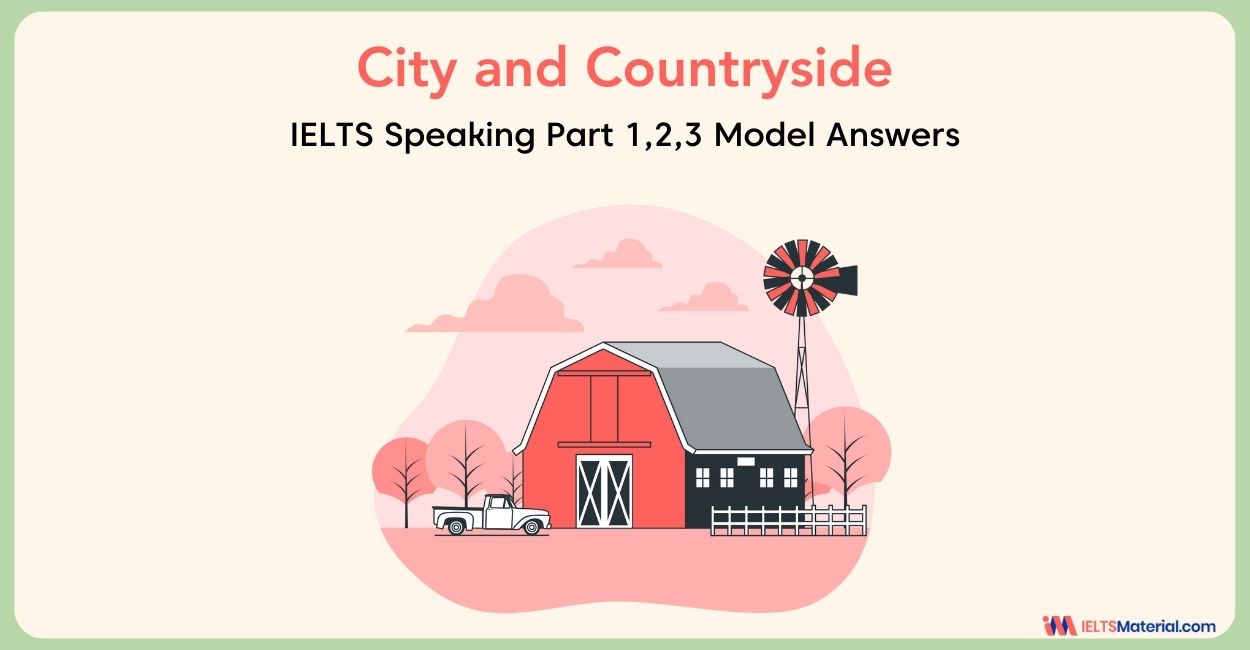
Our Offices
Gurgaon city scape, gurgaon bptp.
Step 1 of 3
Great going .
Get a free session from trainer
Have you taken test before?
Please select any option
Get free eBook to excel in test
Please enter Email ID
Get support from an Band 9 trainer
Please enter phone number
Already Registered?
Select a date
Please select a date
Select a time (IST Time Zone)
Please select a time
Mark Your Calendar: Free Session with Expert on
Which exam are you preparing?
Great Going!
50 Latest Time IELTS Topics
- Unlimited Task 1 checks Get all the feedback you need to keep improving your charts and letters.
- Unlimited Task 2 checks Practice and perfect your skills with essays.
- Personalized suggestions Know how to boost your score.
- Detailed mistakes analysis Get instant feedback. Spot every mistake.
- Topic ideas generator Get topic-specific ideas to enhance your writing.
- Vocabulary helper Get the right words for any topic.
- Progress tracking Track your writing improvements.

IELTS Listening – Time Management
by Mahendra Patel | Mar 2, 2023 | IELTS Listening | 0 comments

IELTS Listening Time Management
Time management is an important factor when it comes to the IELTS Listening exam. Here are some tips to help you manage your time effectively during the exam:
- Read Instructions Carefully: Make sure to read the instructions carefully before each section of the exam to understand what you need to do and how much time you have.
- Skim Questions: Skim through the questions before the recording begins to get an idea of what to expect and to be able to anticipate what kind of information you will need to listen for.
- Use the Time Given Wisely: You will be given time to review your answers after each section of the exam. Use this time to check your answers, but don’t spend too much time on any one question. Move on to the next question if you are unsure of the answer.
- Don’t Get Stuck: If you can’t answer a question, don’t waste too much time on it. Move on to the next question and come back to it later if you have time.
- Keep Track of Time: Keep track of the time during the exam and make sure to pace yourself so that you have enough time to answer all the questions in each section.
- Answer as You Listen: Try to answer the questions as you listen to the recording, rather than waiting until the end of the section. This will help you manage your time more effectively and ensure that you don’t miss any important information.
By following these time management tips, you can improve your performance on the IELTS Listening exam and ensure that you have enough time to answer all the questions in each section. Remember to practice regularly and develop your listening skills to maximize your score on the exam.

Submit a Comment Cancel reply
Your email address will not be published. Required fields are marked *
Save my name, email, and website in this browser for the next time I comment.

Recent Posts
- EXTINCT: THE GIANT DEER
- Educating Psyche
- Economic Evolution
- Early occupations around the river Thames
- Eco-Resort Management
IELTS Help Vocabulary
Privacy Overview
Pin it on pinterest.

IMAGES
VIDEO
COMMENTS
Essay on Time Management in 200 words. Time stops for none and is equal for all. Everyone has the same 24 hours in a day but some people make better use of time than others. This is one of the most important reasons some people are experts in what they do. Therefore, time management plays a vital role in both personal as well as professional lives.
How to Manage Your Time for the IELTS Essay by: IELTS buddy Hi Albarak, Managing the time well is one of the things that candidates find most difficult in the IELTS Writing Task 1 and Task 2. You have only one hour to complete both the tasks - so 20 minutes is recommended for the Task 1 (graph etc) and 40 minutes for the Task 2 (essay).
This is not a good mindset to have in IELTS. It takes weeks or months of consistent preparation, practice and good feedback to get from a Band 6 to a Band 7. 2. Planning issues. You should allocate 10 minutes to planning your essay. Some students think they are wasting time planning or they only spend 2 minutes planning.
03 August 2019. Hey! A lot of students tell me that they have problems with time management in the IELTS writing test. If you don't finish both Task 1 and Task 2 in 60 minutes, you are going to find it very hard to achieve a high score (even if your writing is great!). So, in this week's blog, I want to show you two steps that will help you ...
Time management in the Listening test is especially important as you will only hear the recording once. The IELTS Listening test is 30 minutes. ... IELTS Writing Task 2. Both: Write an essay. At least 250 words. 40 minutes. Don't forget to leave time to review your spelling, grammar and punctuation at the end.
Write an essay about the importance of time management skills and how to improve them. #importance #time #management #skills. With the fast pace of our . life, ... Writing9 was developed to check essays from the IELTS Writing Task 2 and Letters/Charts from Task 1. The service helps students practice writing for IELTS and improve their writing ...
Here are some tips to help you manage your time during the IELTS Writing Task 2: Read the prompt carefully and underline the key instructions, such as the topic, the task, and the number of words required. Spend 5-10 minutes planning your essay. This includes brainstorming ideas, organizing them into an outline, and deciding on the main points ...
Plan and Outline Writing Tasks. Manage Speaking Time. Keep Track of Your Time. Address Your Concerns. Time management plays an important role in achieving success in the IELTS exam. Test-takers are faced with a limited amount of time to complete multiple sections and answer a range of questions. Without proper time management strategies, it's ...
Proper time management in IELTS reading allows test-takers to budget their minutes per passage and ensures they have time to review their answers. In the Writing section, there are two tasks: Task 1 (Report Writing) and Task 2 (Essay Writing). Therefore, proper IELTS time management is crucial here as well.
1) Analyse the question. 2) Brainstorm ideas. 3) Plan the essay structure using these ideas. To be successful in the IELTS writing test without running out of time, you need to practice the process of analysing, brainstorming, planning and writing in 60 minutes as many times as possible before the exam day.
The IELTS reading exam has 40 questions based on 3 texts. You have 60 minutes. The texts increase in difficulty; the first is the easiest and the third is the hardest. Therefore, you should allow for more time on the second and third sections. Generally, allow for 15 minutes for text 1, 20 minutes for text 2, and 25 minutes for text 3.
Time Limits For The IELTS Writing Exam Time Management Strategy For Writing Task 1. After 5 minutes you should have completed your planning and have written your first 2 sentences. After 11 minutes you have completed another 3 or 4 sentences for paragraph 2. After 17 minutes you should have finished the writing task.
The Writing section of the IELTS asks you to write essays that are mostly discussion based. Being aware of the pattern and structure of these essays will prevent you from spending unnecessary time on brainstorming. ... If you allot 1.5 minutes to each question, you will be able to complete your test on time. Time Management during IELTS ...
The simplest way to manage time on IELTS essays is to divide the essay into simple paragraphs and standard structures. And then divide time frame of 40 minutes to complete those tasks. Further, practise the breakdown and tweak it to your writing and thinking speed. Make sure that the whole process does not take more than 40 minutes; the time ...
In this article, we will discuss the importance of time management, the IELTS exam format, and practical strategies for effective time management. ... In Task 2, you must write an essay in response to a given prompt. Speaking. The Speaking section lasts for 11-14 minutes and includes a short conversation with an examiner. You will be asked to ...
Total: 349 words. Teaching point: Normally 4 main paragraphs is enough for most IELTS essays. An introduction of about 50 words, two body paragraphs of about 90 words each, and a conclusion of about 30 words. you should manage your time as follows: - 5 minutes for analysing the question and planning your essay.
One big challenge on the IELTS is timing on the Writing test. Today we'll help you with a great time-management strategy. You have a total of 60 minutes to do the whole Writing test. Task 2 is 250 words and Task 1 is 150 words so you need to spend more time on Writing Task 2. We recommend 20 minutes for Task 1 and 40 minutes for Task 2.
Essay Bank. Essay Categories. Writing Topics "Success is just a matter of time." Services IELTS Speaking Services: Information. IELTS Writing Services: ... IELTS Speaking Part 1: Time Management by. Ivan. in IELTS Speaking Part 1 Posted on . 05/03/2022 12:02 PM. General Rules:
The comprehensive IELTS test, which consists of IELTS Reading, IELTS Listening, and IELTS Writing, lasts for two hours and forty-five minutes. It is better to attempt every question on the IELTS because there is no negative marking. Poor time management or slowness in finishing the paper can prevent you from receiving a high score.
Since the Speaking test assesses your pronunciation, grammar, and vocabulary, it is critical to work on these areas. As a result, practise Part 2 and Part 3 on topics like Time Management from the IELTS Speaking practice tests which will help you improve your test-taking abilities and improve your speaking skills.. Here's the cue card of a sample IELTS speaking test below, with a model ...
Speaking Part 2. Describe your approach to time management. You should say: Why you take time management seriously. How you manage your time. What problems you face. Sample answer : Time management is essential. It helps me maximise my daily productivity while leaving time out to rest.
In your letter: •explain why the occasion is special • ask for her assistance • set up a time to meet at your friend's convenience to discuss your plans Begin your letter as follows: Dear Joan, You should write at least 150 words. You should spend about 20 minutes on this task. Write on this topic.
Time management is an important factor when it comes to the IELTS Listening exam. Here are some tips to help you manage your time effectively during the exam: Read Instructions Carefully: Make sure to read the instructions carefully before each section of the exam to understand what you need to do and how much time you have. Skim Questions ...